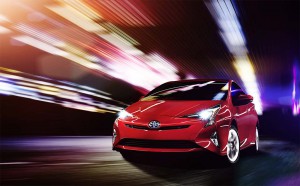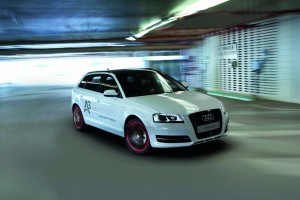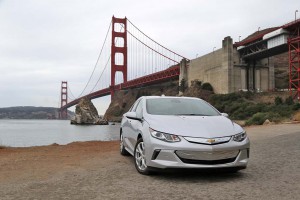Sales of high-mileage and low emissions vehicles, especially battery-based models, have tumbled in recent months, along with fuel prices. But facing tough new mileage mandates in the U.S., and stiffened emissions rules in Europe and other parts of the world, automakers have been rushing to market with an assortment of new, green models.
But which is the most environmentally friendly? Five finalists for Green Car of the Year have been announced, ahead of the awards ceremony set to mark the opening of the 2015 Los Angeles Auto Show next month.
“This is the strongest field of finalists we’ve seen in our annual Green Car of the Year® program,” said Ron Cogan, editor and publisher of the Green Car Journal and CarsOfChange.com.
The five finalists cover a wide range of technologies and, significantly, none are pure battery-electric. They all use a gasoline engine in some form or another:
-
The Audi A3 e-tron is the maker’s first plug-in hybrid-electric vehicle, though Audi has a range of plug-ins and pure electric models set to follow;
- The Chevrolet Volt was the first mass market plug-in hybrid, and has gone through a complete redesign for the 2016 model-year;
- The 2016 Honda Civic is the only finalist not offered with a hybrid option, but it still offers what Green Car organizers call “hybrid-like fuel economy”;
- The Hyundai Sonata offers a variety of powertrain options, including both a conventional hybrid package making 43 mpg on the highway, and a new plug-in with 24 miles of battery range;
- The Toyota Prius is back in all-new fourth-generation form, with a new, more aero exterior design, an updated interior, more safety features, and 10% better mileage.
(Click Here for a review of the 2016 Chevrolet Volt.)
“Each of the five nominees makes a strong environmental statement in distinctly different ways,” noted publisher Cogan, “with a common strategy of recognizing what’s most important to today’s drivers. Their use of wide-ranging powertrain technologies underscores that all approaches are essential to achieving important environmental goals.”
(First drive: Click Here for a review of the 2016 Honda Civic.)
Launched in 2005, the Green Car of the year awards have highlighted the increasing emphasis on clean and high-mileage automotive technologies. But organizers have occasionally confounded environmentalists by defying conventional wisdom. On several occasions they have honored diesels and traditional, gas-powered vehicles over more politically correct battery-based models.
Last year, however, the choice of the BMW i3 was generally well-received. In delivering the trophy, Cogan declared that the i3 battery-electric city car “breaks the mold,” not only with its battery drive system but by bringing the use of lightweight carbon fiber down to the mainstream.
The winners of the Green Car of the Year will be chosen by a jurythat consists of environmentalists, regulators, journalists and enthusiasts, including mega-car collector Jay Leno and Jean-Michel Cousteau, grandson of ocean environmentalist Jacques Cousteau.
(For more on the all-new Toyota Prius, Click Here.)




In 10 years, this faux award has selected anything but a Prius. Worse some of their awards have been to real dogs that have disappeared. Heck, this award appears to be the ‘kiss of death’ for the winners
Meanwhile, every year, the Prius dominates the fuel efficient market in total sales, millions on the road, and fuel saved. Customers are voting with their wallets, not this nonsense.
Owner of two Prius, we hope the “Volt” wins . . . as past award winners have been so successful.
Bob Wilson, Huntsville, AL